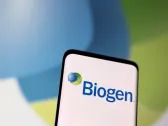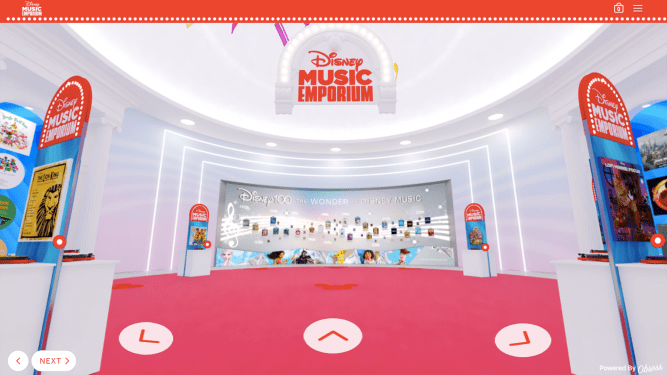The world of biotechnology is always moving at breakneck speed, and 2023 has been no exception. One particularly significant development this year involves two major players in the Alzheimer’s drug market: Biogen and Sage Therapeutics. This article will delve into the intricacies of Biogen’s acquisition bid for Sage Therapeutics, the implications of this deal, and its potential impact on both companies.
The Acquisition Deal Unfolds
On Friday, Biogen made a formal filing that revealed its intentions to purchase all outstanding shares of Sage Therapeutics it does not already own. This move comes at a time when Biogen is navigating a rocky road in the United States with its Alzheimer’s drug, Leqembi. Concerns about cost, efficacy, and side effects have kept sales growth slow despite significant investment.
The filing indicates that Biogen holds a 10.2% stake in Sage Therapeutics. This percentage is crucial because it underscores Biogen’s current ownership interest. The offer price for the shares is set at $7.22 apiece, which represents a 30% premium over the closing price of Sage Therapeutics’ stock on Friday. Calculations by Reuters show that this premium places Sage Therapeutics’ equity value at approximately $441.7 million.
Background: Biogen’s Market Position
Biogen is one of the leading players in the Alzheimer’s drug market, with Leqembi being its flagship product. However, the company has faced challenges in the U.S., where regulatory bodies have scrutinized its drug for cost, efficacy, and side effects. These concerns have weighed on Biogen’s stock price and sales performance.
In contrast, Sage Therapeutics has a different story. The company’s shares fell by 74.9% last year due to multiple failed trials with its drug, dalzanemdor. After these failures, Sage decided to pivot its focus to its postpartum depression drug, Zurzuvae. This partnership with Biogen appears to be a key factor in Sage’s current trajectory.
The Struggle for Survival: Sage Therapeutics
Sage Therapeutics’ journey has been marked by significant challenges. Its most promising drug, dalzanemdor, faced multiple failed clinical trials, which led to a substantial drop in stock value. However, the company is now shifting its focus to a different area—postpartum depression—with its drug, Zurzuvae.
The shift seems strategic for Sage Therapeutics, as postpartum depression is a well-understood condition with established treatments. This could position Sage to capitalize on a potentially lucrative market while avoiding the pitfalls associated with Alzheimer’s drugs in the U.S.
Biogen’s Potential Gains
Biogen has been a consistent partner in Sage’s drug development efforts, contributing significant resources and expertise. The acquisition of Sage would allow Biogen to accelerate its pipeline and expand its presence in key markets. However, the deal also raises questions about how it will integrate Sage’s operations into its own.
The 10% stake that Biogen already holds suggests a long-term partnership rather than an immediate exit from Sage. This could be beneficial for both parties, as it allows Biogen to gain insights into Sage’s operations while maintaining control over key assets.
The Financial Implications
The equity value of Sage Therapeutics at $441.7 million is a significant figure in the context of its current market valuation. This value reflects the potential upside for Biogen if the deal goes through. However, it also underscores the risks associated with such a large-scale acquisition.
Biogen’s decision to pursue this deal could have far-reaching implications for both companies. For Sage Therapeutics, the sale would provide immediate liquidity and allow the company to focus its resources on high-priority areas like postpartum depression. For Biogen, the acquisition could open up new avenues for growth and innovation in the Alzheimer’s drug space.
The Future of Alzheimer’s Drug Development
The deal between Biogen and Sage Therapeutics highlights the intense competition in the Alzheimer’s drug market. With companies like Biogen, Janssen, and AbbVie vying for market share, any acquisition could have a substantial impact on the trajectory of this critical area of research.
For Sage Therapeutics, the pivot to postpartum depression offers an opportunity to reposition itself as a leader in this well-understood condition. This move could also serve as a stepping stone toward more ambitious projects in the future.
Conclusion
The acquisition of Sage Therapeutics by Biogen represents a significant strategic move in the Alzheimer’s drug race. While it presents an opportunity for growth and expansion, it also carries its own set of risks and challenges. As both companies navigate this complex landscape, the outcome will depend on a variety of factors, including market conditions, integration efforts, and regulatory clarity.
In conclusion, Biogen’s acquisition of Sage Therapeutics is a pivotal moment in the history of Alzheimer’s drug development. Whether it succeeds or not will be determined by a combination of strategic decisions, operational capabilities, and market dynamics.



